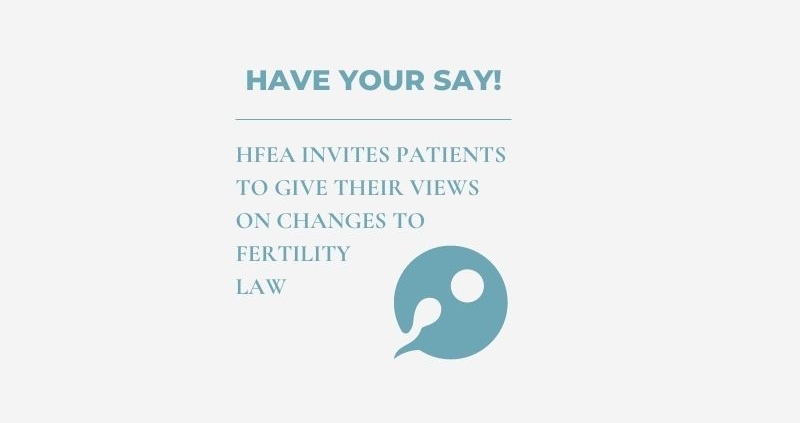Patients asked to give their view on proposed changes to ‘inflexible’ fertility law
The Human Fertilisation and Embryology Authority (HFEA) has opened a patient consultation process regarding proposed changes to UK fertility laws which they say are inflexible and not reflective of modern fertility practice.
The Human Fertilisation & Embryology Act (HFE Act), the law that currently governs fertility treatment and embryo research in the UK is over 30 years old. The HFEA believe that it no longer accurately reflects the medical and scientific innovations and changes in societal expectation that have occurred over the subsequent decades. They recommend sweeping reforms, proposing to put patients at the heart of fertility law.
Julia Chain, Chair of the Human Fertilisation & Embryology Authority (HFEA), explains: “Much of the fertility law has stood the test of time remarkably well but modern fertility practice, emerging possibilities in research that could benefit patients and the changing expectations of donors and of families, are not reflected in the sector’s 30-year-old law.
“With input from an expert advisory group, we have identified where the law needs to be modernised in the interests of patients and their families. This includes providing more up to date powers for inspecting and regulating fertility clinics in the interests of patients and greater choice around donor anonymity. However, it’s important to note that any decision to update the law is for the Government and ultimately Parliament to decide.”
Fertility law changes being considered
- Changes to HFEA’s regulatory powers so they can more rapidly impose conditions, suspend all, or part of a service for a specific period of time, or impose financial penalties where there have been serious non-compliances
- Extending HFEA’s powers to address fertility services outside licensed fertility clinics
- Changing current access to donor information, including providing parental and donor choice where they can opt for anonymity until age 18 (as now) or identifiable information on request after the birth of a child.
- Allowing automatic record-sharing between fertility clinics and GPs to ensure safer patient care.
- Encouraging innovation by allowing the HFEA to authorise trials for low-risk new practices.
HFEA also plan to future proof the law to ensure it is better able to respond to scientific developments and speed up potential new treatment options for patients.
Since the Human Fertilisation and Embryology Act was established in 1990, fertility care in the UK has changed rapidly and currently around 60,000 patients use fertility services every year and approximately 60% of them will pay for their own treatment.
The HFEA consultation opened on 28 February and will run for six weeks on the regulator’s website. It will submit its recommendations for law changes to the Department for Health and Social Care by the end of the year.
For more information and to share your views, Fertility Network UK are holding a webinar on the HFEA’s proposed changes to fertility law with Peter Thompson from the HFEA. The webinar will explain more about this consultation process, what the proposed changes mean to patients and how patients can get involved.
You can register here: Webinar – Why Changes To Fertility Regulations Matter To You | Fertility Network

